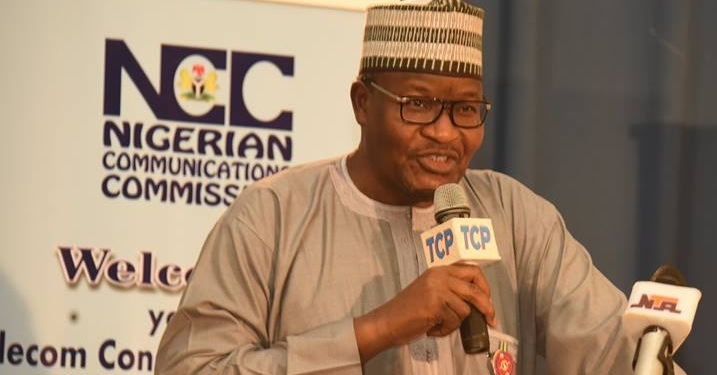Executive vice-chairman of the Nigerian Communications Commission (NCC), Umar Danbatta has disclosed that the commission is committed to improving telecommunication infrastructure and services in the country.
According to Danbatta, this can be achieved through collaboration with all stakeholders in the telecom ecosystem, implementation of regulatory initiatives and programmes towards bridging identified gaps and shortages in critical telecom infrastructure in the country.
This was contained in a statement released on Monday by the director of public affairs of NCC, Ikechukwu Adinde.
According to the statement, Danbatta added that the availability of broadband insufficiency was non-negotiable in the country’s strategy towards delivering pervasive telecom services.
The vice-chairman also commended the efforts of the government in context towards addressing infrastructure gaps and lauded both state and non-state actors for the vision, diligence and continued dedication to the implementation of the Nigerian National Broadband Plan (NNBP) 2020-2025.
He said one of the identified gaps to robust connectivity was the fact that inadequate infrastructure remained a bane to achieving desired broadband penetration to boost access to services that will enhance economic growth and development.
He, however, emphasised that the commission recognises the importance of infrastructure expansion and this explains its unequivocal commitment and desire to see the licensed Infrastructure Companies (InfraCos) work speedily and with precision to cascade fibre to the frontier, to enhance robust telecom service provider.
He said the InfraCo licensees, expectedly, also prioritise stipulated licensing conditions to ensure expected milestones set by the commission are achieved.
He further added that the commission’s target for licensing the infraCos was to ensure the deployment of fibre infrastructure needed for pervasive broadband penetration across the 774 local government areas (LGAs).
“So, the Commission is committed to ensuring inclusiveness by ensuring the provision of affordable and pervasive access to the Internet as emphasised by the International Telecommunication Union (ITU) and the United Nations (UN). We are aware that until commensurate infrastructure is deployed in the country, the country may not hit the required target necessary for the desired economic development,” Danbatta said.
“The Commission has recorded remarkable progression with respect to contribution to Gross Domestic Product (GDP). This is besides facilitating investment, enhancing Quality of Service (QoS) to enhance consumer quality of experience and stakeholder satisfaction in line with the expectations of the Strategic Management Plan 2020-2024.
“We will heighten efforts in all areas of the Plan as streamlined in new Strategic Vision Implementation Plan (SVIP) 2021-2025, including facilitating strategic collaboration and partnering through which it has forged quantifiable strategic alliances with its ever-expanding array of stakeholders.
“Concerning NCC’s pioneering strides in the deployment of Fifth Generation (5G) network in Sub-Saharan Africa, the rollout of 5G network in Nigeria will require more infrastructure for the service to reach all parts of the country. We call for concerted efforts and unwavering commitment of all stakeholders for the nation to achieve steady, timely and accurate deployment of 5G services because of its benefits to individuals, businesses and the growth of the country.”








Discussion about this post